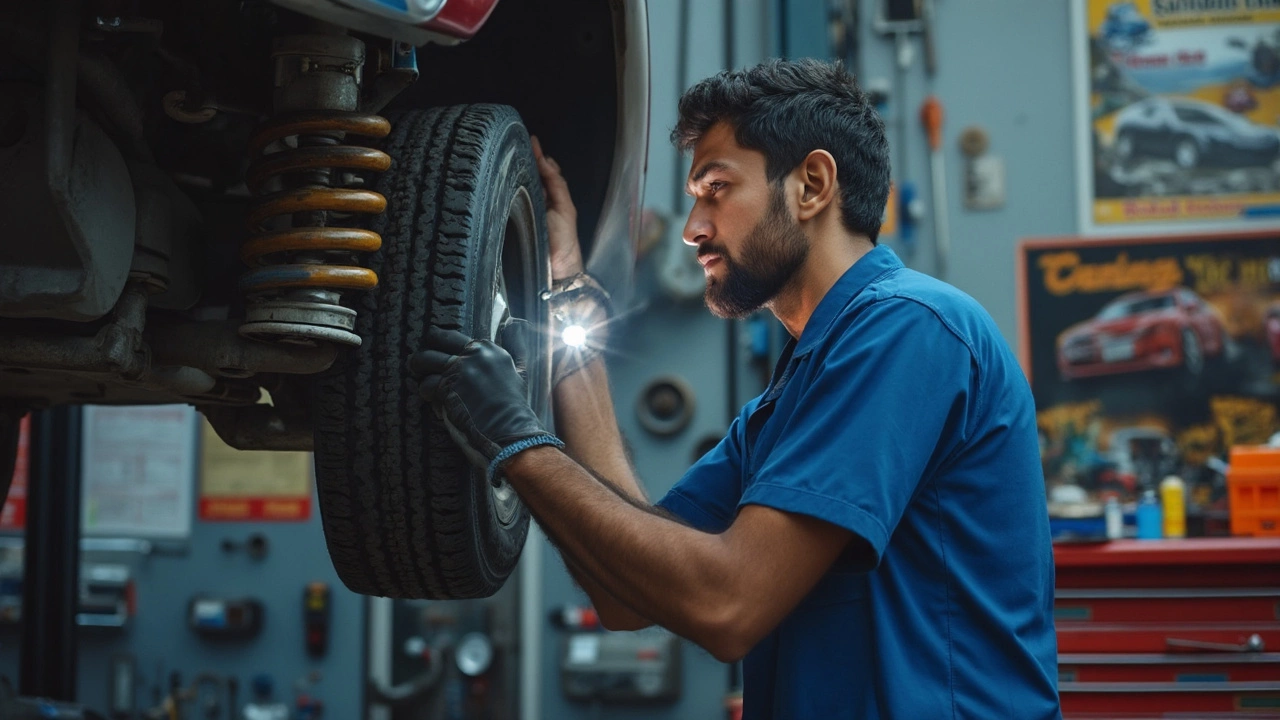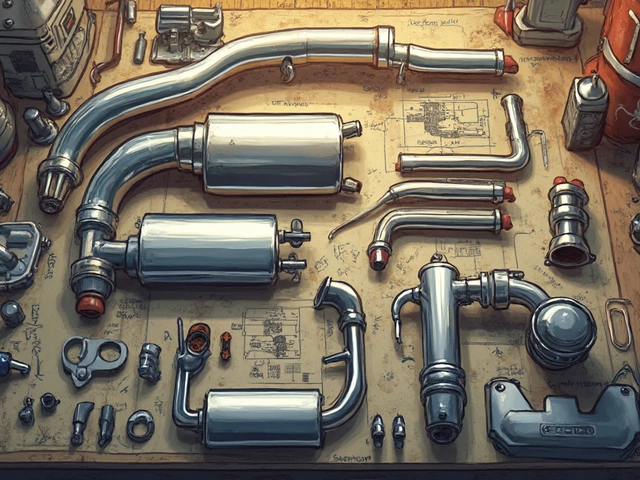Alright, so your car's been acting a little off lately, and you're wondering if the suspension might be the culprit. Yeah, it can be tricky, but don't sweat it; you're in good hands. Let’s talk about those pesky signs first.
Ever noticed an unusual bumpiness when cruising down the street? Like your car's auditioning for a hip-hop video with all that bounce? Or maybe you're hearing odd noises every time you take a corner or hit a speed bump? Those might be signs that your suspension is more than just under the weather.
Before you panic, though, there are a few simple tests you can do without getting your hands too greasy. How about a good old bounce test? Just press down hard on the front or rear end of your car and let go. If it bounces more than a couple of times, your suspension might be calling for some TLC.
- Signs Your Suspension Might Be Bad
- Perform Simple At-Home Tests
- When to Seek Professional Help
- Maintenance Tips for Prolonging Suspension Life
Signs Your Suspension Might Be Bad
Let's dive into some common symptoms that scream, "Hey, check your suspension!" One big red flag is if your ride feels more like a rollercoaster than a car ride. Those constant up-and-down motions can be your bad suspension throwing a tantrum.
Here's something we all hate: weird noises. If you hear clunking sounds especially when you’re driving over bumps or potholes, it’s not a garage elf—it’s likely your suspension parts looking for attention. These noises can indicate loose or worn-out parts.
Another clear sign is uneven tire wear. Take a quick look at your tires—if some parts are worn more than others, your alignment and suspension could be in a bad state, affecting how everything sits and rolls.
Ever notice your car pulling to one side? Sure, it might be temping to blame it on the wind or road slope, but it could actually be a suspension or alignment issue. A healthy car should drive straight without much effort on your part.
And don't overlook the nose diving or rear squatting when you brake hard or accelerate. It's not supposed to look like a bowing contest; it’s probably your suspension giving up on its ability to distribute weight evenly.
Just to give you a broader sense, here's a quick look at these suspension-related warning signs:
- Overly bouncy ride
- Clunking noises over bumps
- Uneven tire wear
- Pulling to one side
- Nose diving during braking
Understanding these symptoms can keep you one step ahead, ensuring your ride stays smooth and safe. If this all sounds too familiar, it might be time to dig deeper into your suspension.
Perform Simple At-Home Tests
Testing your car's suspension at home isn't rocket science. You can check a few things before heading to the mechanic and these might save you time and cash.
First up, the classic bounce test. Head to your driveway and give it a go. Put some weight on the front or back end of the car, and then just let go. Watch how your car reacts. If it bounces more than a couple of times, that’s not a good vibe.
And then there’s the visual check. Pop the hood and get under the car. Look at your suspension parts like struts and shock absorbers. These parts shouldn’t have any noticeable leaks, and the springs shouldn't be cracking. See any of that? Uh-oh, it’s time to fix them up.
Listen up while driving too! If your car makes clunking noises over bumps or if it feels like you're on a rollercoaster during turns, pay attention. Sound is a great indicator that your suspension might be worn out.
Finally, don't ignore uneven tire wear. If one tire is looking more worn than the others, it might be a sign of a bad suspension. Check those tire treads, and if the pattern looks funky, it’s worth hitting up a professional.

When to Seek Professional Help
So you've done a few checks and things aren't looking great. Sometimes it's best to leave it to the pros before things go from bad to worse. But how do you know when to hit up a mechanic?
If you're experiencing any of the following issues consistently, it's time to call in a professional:
- Leaking Fluid: If you notice hydraulic fluid leaking under your car, that's a big red flag. Your suspension's not something you want to mess around with when it's losing fluid.
- Uneven Tire Wear: Spotting uneven tread wear on your tires? This could be a sign that your suspension isn't keeping your tires in proper alignment, which needs professional attention.
- Vehicle Drifting or Pulling: If your car feels like it's taking on a mind of its own and drifting to one side, your suspension may be imbalanced. Better get that looked at.
- Difficulty Steering: Steering should be smooth, not a workout. If you're finding it tough to keep your car straight, there's probably a deeper suspension issue.
And here’s a quick heads-up: continually driving with a messed-up suspension can lead to more costly damages down the road. If you're unsure or new to this, or if signs persist after some basic checks, it's totally worth investing in professional advice. Your car and your wallet will thank you later.
Maintenance Tips for Prolonging Suspension Life
Want your suspension to last longer than your gym membership? It’s actually easier than you might think. A little care goes a long way, and here are some tips to keep things smooth under your ride.
Regularly checking the condition of your shocks and struts can prevent bigger issues down the road. You're looking for leaks or any unusual wear and tear. Just a visual inspection now and then can save a lot of headaches later.
Don't forget to check your wheel alignment periodically. Misalignment can lead to uneven tire wear, which in turn puts stress on the entire suspension system. It’s like walking with one shoe higher than the other—uncomfortable and damaging.
Cleaning the suspension parts whenever you wash your car is also a smart move. Dirt and grime can affect how well your suspension parts move. A splash of water and mild soap can work wonders here.
Now, when it comes to driving habits, try to avoid potholes and take speed bumps at a reasonable pace. It’s not just about comfort; harsh impacts can wreak havoc on your suspension parts.
- Avoid carrying extra heavy loads regularly, as this can place additional stress on the suspension.
- Have the suspension system professionally checked every 12,000 miles to catch small issues before they explode into big problems.
There you have it! With these simple maintenance tricks, you'll be cruising smoother for longer and saving money on repairs.




